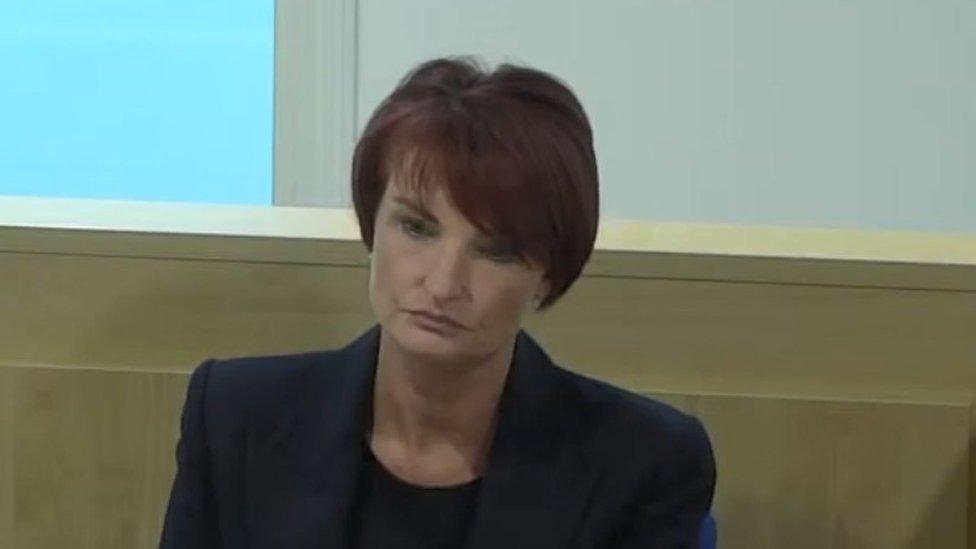Manchester Arena Inquiry: Police chief failed to share safety situation
- Published
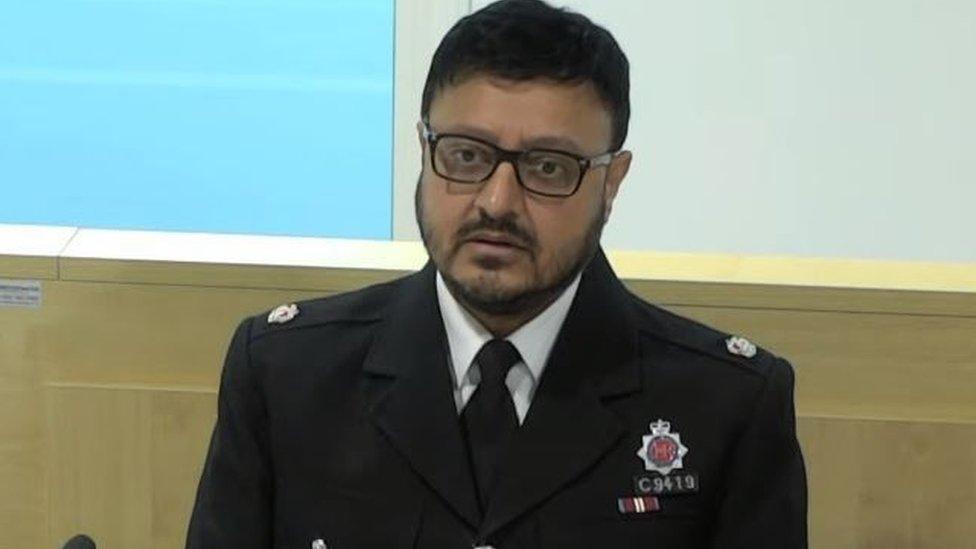
Supt Arif Nawaz said joint working with other emergency agencies "was not at the forefront of my mind"
A police chief did not tell the fire service the Manchester Arena bomb scene was "safe enough" for emergency responders to be there, an inquiry has heard.
Firefighters only arrived at the arena more than two hours after the explosion on 22 May 2017.
Supt Arif Nawaz was the Greater Manchester Police silver commander for more than an hour after the bombing.
He said he did not contact Greater Manchester Fire and Rescue Service.
Twenty-two people were killed and hundreds more injured after a homemade device exploded at the end of an Ariana Grande concert at Manchester Arena.
Supt Nawaz told the public inquiry into the atrocity that joint working with other emergency agencies "was not at the forefront of my mind" on the night.
He said although he liaised with a North West Ambulance Service commander in Greater Manchester Police's (GMP) silver command room, he never tried to contact the fire service to share his awareness of the safety situation on the ground.
Supt Nawaz said if he had spoken to them, he would have explained it was safe enough for unarmed responders to be at the arena complex.
"I don't think it would be unreasonable to say that could absolutely have been a consideration to have shared that earlier. When I look at the myriad of things that were coming in and I was dealing with, I hadn't prioritised that earlier," he said.

Twenty-two people were killed in the May 2017 bombing
The inquiry heard it was an hour and six minutes after the explosion before Supt Nawaz spoke to the bronze commander who was overseeing the rescue effort in the arena foyer.
Supt Nawaz accepted he was the best source of information at the scene and that he should have spoken to him earlier.
The police chief told the hearing he had not had any training in dealing with a terrorist attack and only one joint training exercise with other blue light responders.
That training was when he was a bronze commander several years before the arena attack, he said.
Shortly after the explosion, GMP's force duty officer declared "Operation Plato" - a pre-arranged response to a marauding terrorist firearms attack.
Supt Nawaz told the inquiry at the time of the atrocity in May 2017, he did not know what Operation Plato was.
"It completely threw my thinking and I'm trying to draw out, is it something I've missed, what is it I need to do, so that's where I draw on my experience but it was just this incredible feeling of uncertainty," he said.
Police experts for the inquiry have criticised Supt Nawaz for not going to the scene, as silver commanders are normally expected to do.
He told the hearing he initially intended to go to the arena but was told by GMP's gold commander to go to the force's headquarters.
"Your initial reaction as a police officer is to go. But then actually, as a silver commander, it's about a step back, a more holistic view of everything and actually what's going to provide the very best response," he said.
Supt Nawaz also denied criticisms by police experts that he failed to provide any meaningful tactical command or plan.
The inquiry continues.

Why not follow BBC North West on Facebook, external, Twitter, external and Instagram, external? You can also send story ideas to northwest.newsonline@bbc.co.uk
Related topics
- Published13 May 2021
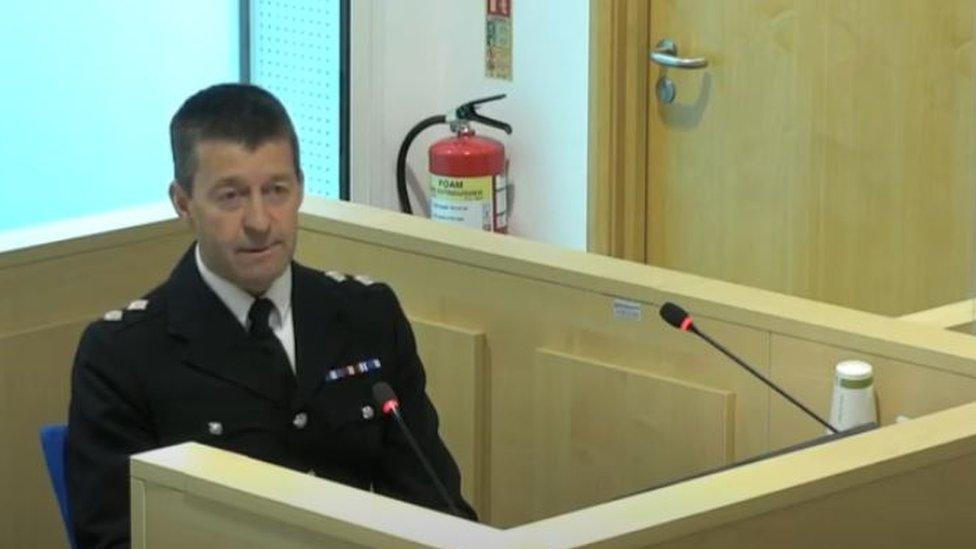
- Published11 May 2021

- Published7 May 2021
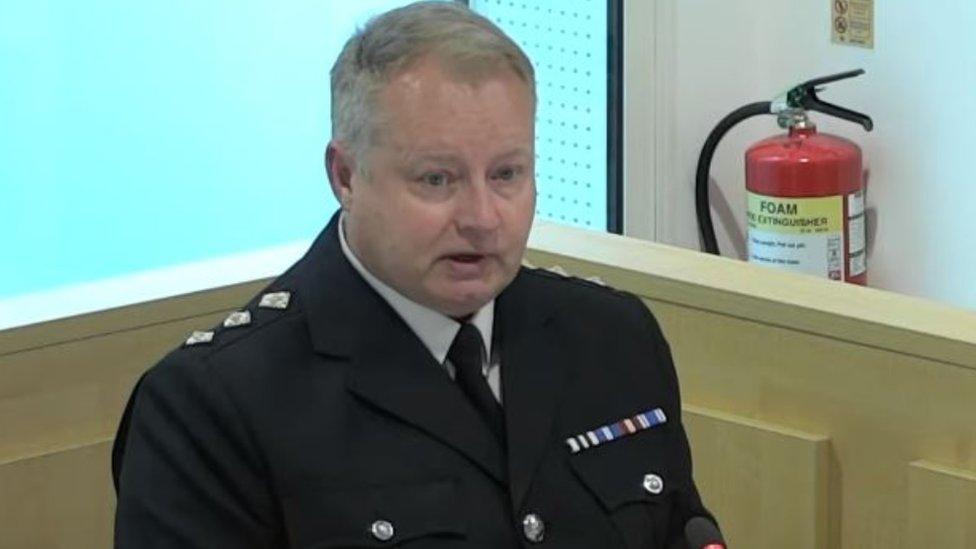
- Published6 May 2021
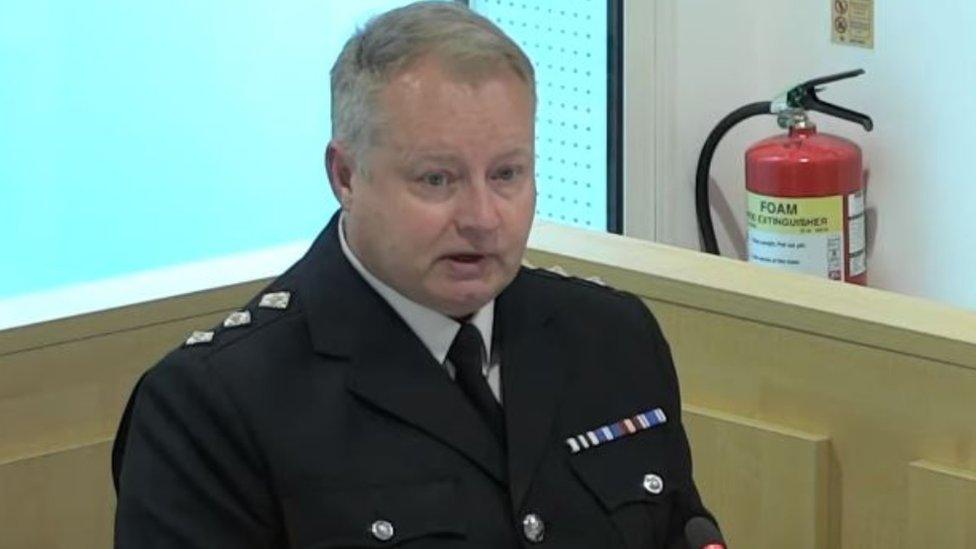
- Published5 May 2021

- Published29 April 2021
